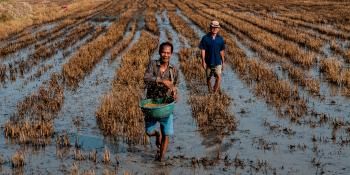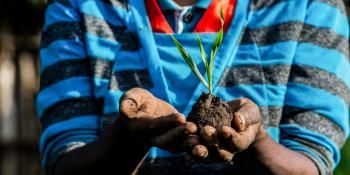Climate change, agrarian stress and gender in the Eastern Gangetic Plains
Climate change is predicted to have a significant impact on people’s livelihoods in the Gangetic Plains, and, in particular in Bihar state of India Nepal and Bangladesh, where water resources will be highly affected by changing precipitation, and where the levels of poverty and entrenched inequality in the local populations is high.
Agrarian communities in the Terai, in Nepal, have to address mounting challenges related to increased climatic variability and acute socio-economic stresses. As migration patterns show, these stressors seriously threaten the sustainability of farming systems in the region.
Identifying the factors impacting the capability of men and women to sustainably address these challenges is key to design fair policies which support marginalized groups.
Together with the International Development Enterprises (iDE) Bangladesh and the Department of Irrigation (DOI) of Nepal, and the Nepal Forum of Environmental Journalists (NEFEJ), the International Water Management Institute (IWMI) are organising a Workshop and Policy Debate on the topic of Climate change, agrarian stress and gender in the Eastern Gangetic Plains on November 15, 09:00-16:30. The workshop is supported by the CGIAR Research Program on Climate Change, Agriculture and Food Security (CCAFS) and is by invitation only.
A team of IWMI researchers has conducted research in the Indo-Gangetic Plains (Nepal Terai-Madhesh, Bihar and Bangladesh) to understand the patterns of vulnerability to climate change and the adaptive capacity for women and men farmers respectively, with a focus on agricultural water management. Learn more about this research project here.
For more information contact: Dr Fraser Sugden: f.sugden(at)cgiar.org


